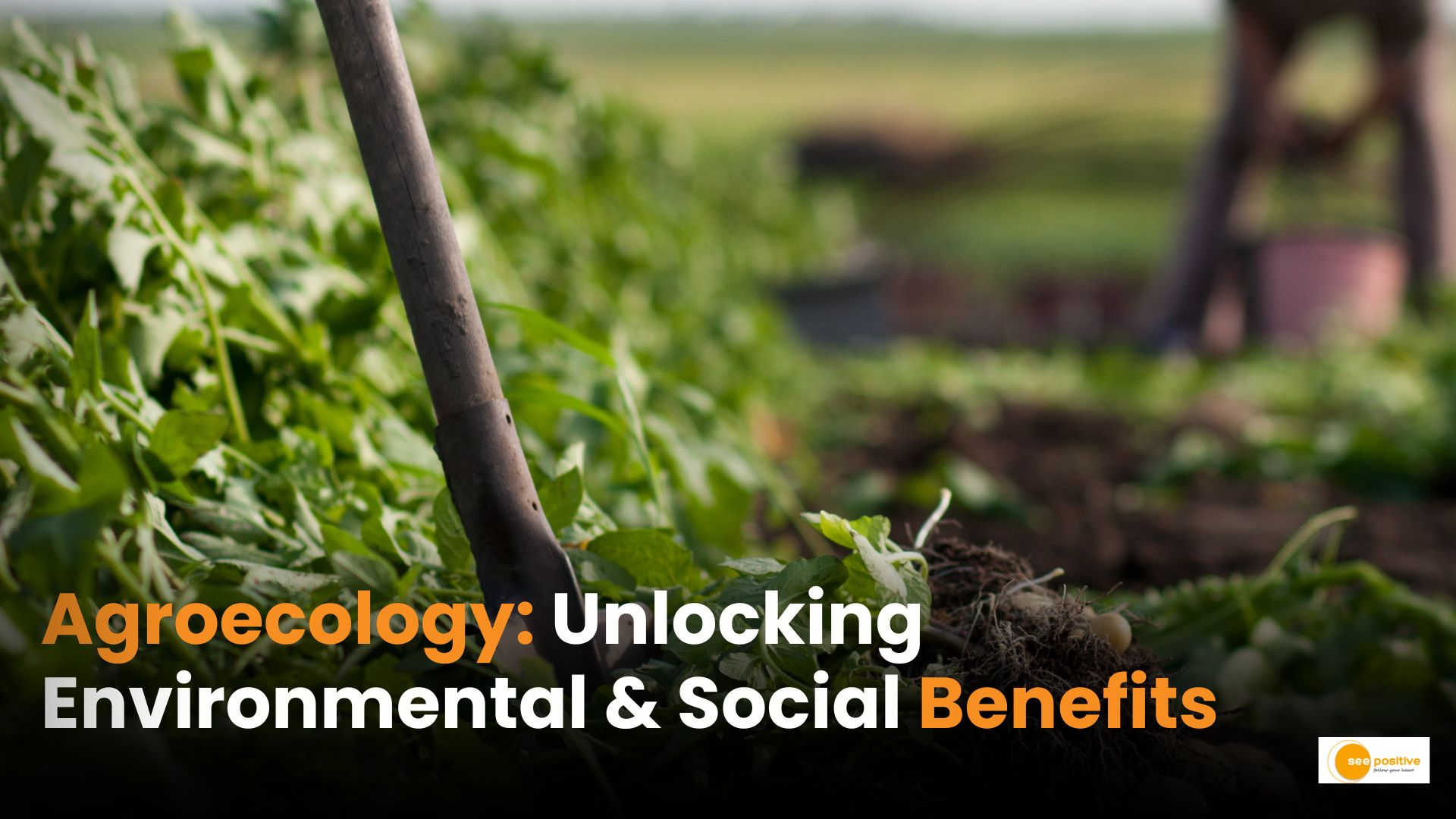Sustainability in Action: Agroecology integrates ecological principles with farming systems. It aims at regenerative practices that not only enhance environmental sustainability but also promote social equity. Agroecology offers a pathway for resilient food systems.
It also promotes fair trade and social equity, making it not only an ecological approach but a socio-economic one as well.
Read on the article to know the holistic approach of agroecology which takes into account environmental, economic, and social dimensions.
Agroecology- a holistic approach
It is a dynamic and multi-dimensional concept that transcends traditional agricultural practices. Agroecology integrates the science of ecology with the practices of farming to create sustainable agricultural systems. It emphasizes biodiversity, soil health, water conservation, and reduced reliance on external inputs like chemical fertilizers and pesticides. By focusing on local knowledge and community involvement, agroecology seeks to empower farmers, improve food systems, and promote resilience to climate change.
Focus on biodiversity
One key element of agroecology is its focus on biodiversity—through crop diversification, agroforestry, and soil regeneration—ensuring that agricultural systems are more adaptable to climate change and less reliant on external, non-renewable inputs. This also helps strengthen food security, improve nutrition, and reduce the negative environmental impact of industrial farming methods.
Improved soil health
Agroecology enhances both the health of people and the planet. Agroecological systems often lead to improved soil health. Healthy, biologically rich soils are better at retaining water and nutrients, and they support crops that are more resilient to environmental stresses like droughts and pests.
More nutrient-dense food
In addition to improving the soil and making crops more resilient, agroecology often results in more nutrient-dense food. This is because these farming systems focus on the whole ecosystem, enriching soil fertility through composting, crop rotation, and agroforestry, rather than relying on synthetic fertilizers and chemicals that may degrade soil health over time.
Addressing cultural practices and social knowledge
Agroecology acknowledges that agricultural practices are shaped by natural factors, but also by social structures, policies, and cultural norms. By understanding these relationships, agroecology can better address the social equity aspects of food systems—like ensuring that small-scale farmers have access to land, fair markets, and resources, all while also protecting natural resources and ecosystems.
Long-term sustainability
Agroecology is gaining traction among governments and international organizations who are seeking ways to address global challenges such as climate change, loss of biodiversity, and unsustainable agricultural practices. It’s a solution that can provide long-term sustainability, both for people and the planet.
Closer connections between farmers and consumer
There is a lot of emphasis on direct connections between farmers and consumers through farmer’s markets and cooperative networks. These platforms allow farmers to have a better understanding of the demands of their customers, while consumers benefit from knowing where their food comes from and how it was produced. This fosters trust and a sense of community, with both parties playing an active role in shaping the food system.
Positive Takeaway
By blending science with ecology, biology, and sociology, agroecology provides a comprehensive understanding of how agricultural systems function and how they can be improved in ways that are not only efficient but sustainable.


